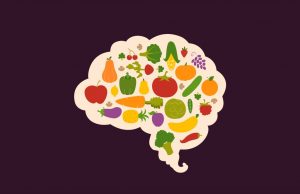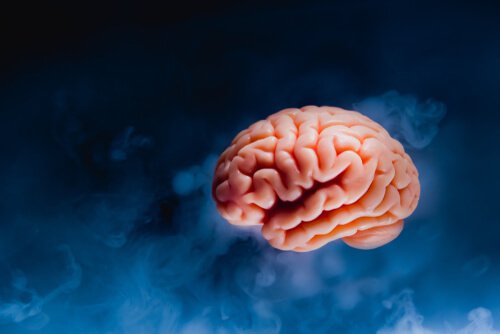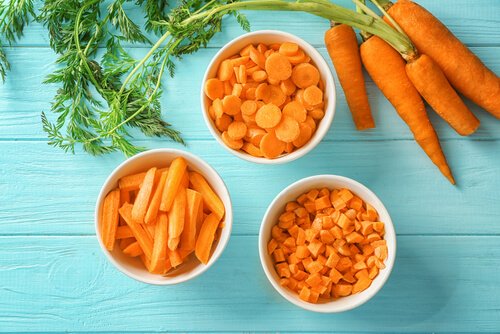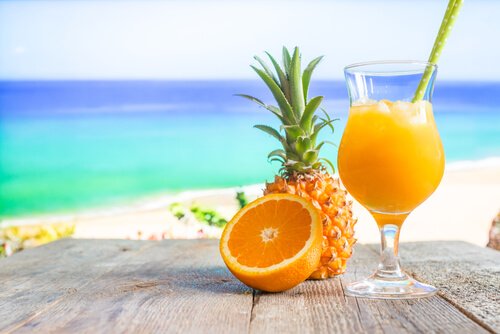4 Vitamins for Your Brain


Reviewed and approved by the psychologist Gema Sánchez Cuevas
The brain is without a doubt the most important organ in our body. It takes care of all the bodily functions that keep us alive. It’s also the place that contains our consciousness, our thoughts, and our personality. And it needs vitamins.
That’s why it’s absolutely essential to take good care of this part of your body. In this article we’re going to tell you about the best vitamins for your brain, so you can get the most out of this vital organ. Learning about the substances on this list will be especially good for you if you’ve been extremely tired lately or you don’t feel like you’re working at your mental level of 100%.
Which vitamins are good for the brain?
Vitamins are natural substances we need for our body to work properly. They exist naturally in a lot of the food we eat. That’s a big part of why having a good diet means having good levels of vitamins.

Out of all the vitamins that exist, there are some with a particularly positive effect on the brain and its main functions. For example, you can improve your memory or attention if you take in a healthy amount of certain vitamins.
The problem is that sometimes our diets aren’t as well-balanced as they should be. That’s why it’s so important to learn which vitamins are most important for the brain, and which foods you can get them from. This article is going to focus on these four:
- First: Vitamin A
- Second: Vitamin B1
- Third: Vitamin C
- Fourth: Vitamin D
Now we’re going to talk about each one in-depth.
Vitamin A
Vitamin A, also known as beta karoten, is one of the most beneficial vitamins for your memory. Tons of studies have linked it to protection against cognitive degeneration and general improvement in mental capacities. They’ve also discovered that a lack of vitamin A can lead to serious health problems, like permanent blindness.
But where can you get this wonderfully beneficial vitamin? Beta karoten is a reddish pigment that exists in fruits like carrots, pumpkins, mango, and papaya. So, eating fruits like those can help you a lot if you feel like you’re having problems with your memory.

Vitamin B1
The second vitamin on our list also goes by the name thiamine. It’s one of the most important substances in our brain and in our nervous system. It also plays a major role when it comes to turning food into energy. There are other bodily functions it takes part in too, like blood circulation and glucose absorption.
But let’s get to what it does for your brain. It’s been proven that a vitamin B1 deficiency can lead to all kinds of serious issues, from memory loss to depression. In some cases people develop a devastating illness known as Korsakoff Syndrome, which is common in people who’ve drunk too much alcohol in their life.
This vital substance is easiest to find in meat (especially chicken, pork, and beef). You can also get it from nuts, some fruits and vegetables, and certain whole grains.
Vitamin C
Vitamin C is one of the most well-known vitamins throughout the world because of its many benefits. It also goes by the name of “ascorbic acid,” and it’s a powerful antioxidant that stops your brain from aging too quickly.
According to the research, this can help improve brain functions like attention and memory. Plus, it can prevent you from getting certain illnesses, whether a simple cold or even cancer. Lastly, some experts see it as a natural antidepressive, because it boosts serotonin levels and that helps improve your mood.
This important vitamin is especially present in citrus. Oranges, tangerines, strawberries, wild fruits, pineapple, and grapefruit are some of the foods with the highest concentration of it. There are also some vegetables, like broccoli and peppers, with a lot of vitamin C in them.

Vitamin D
The last vitamin we’re going to talk about is, in some ways, an exception. It’s the only one of all of these that doesn’t exist in any foods we know of. Still, maintaining good levels of it is absolutely essential for keeping brain and body healthy.
So how can you get more vitamin D? The answer: you have to get direct exposure to the sun. Sunlight allows you to metabolize this substance in your body, and it can improve your mood, help produce more testosterone, and improve your mental capacity for problem solving.
As you can see, the majority of these important vitamins are in most healthy foods (fruits, vegetables, and meat). Maintain a balanced diet, doing exercise, and making sure you get enough exposure to the sun are all things that will help you keep your brain functioning as well as it can.
The brain is without a doubt the most important organ in our body. It takes care of all the bodily functions that keep us alive. It’s also the place that contains our consciousness, our thoughts, and our personality. And it needs vitamins.
That’s why it’s absolutely essential to take good care of this part of your body. In this article we’re going to tell you about the best vitamins for your brain, so you can get the most out of this vital organ. Learning about the substances on this list will be especially good for you if you’ve been extremely tired lately or you don’t feel like you’re working at your mental level of 100%.
Which vitamins are good for the brain?
Vitamins are natural substances we need for our body to work properly. They exist naturally in a lot of the food we eat. That’s a big part of why having a good diet means having good levels of vitamins.

Out of all the vitamins that exist, there are some with a particularly positive effect on the brain and its main functions. For example, you can improve your memory or attention if you take in a healthy amount of certain vitamins.
The problem is that sometimes our diets aren’t as well-balanced as they should be. That’s why it’s so important to learn which vitamins are most important for the brain, and which foods you can get them from. This article is going to focus on these four:
- First: Vitamin A
- Second: Vitamin B1
- Third: Vitamin C
- Fourth: Vitamin D
Now we’re going to talk about each one in-depth.
Vitamin A
Vitamin A, also known as beta karoten, is one of the most beneficial vitamins for your memory. Tons of studies have linked it to protection against cognitive degeneration and general improvement in mental capacities. They’ve also discovered that a lack of vitamin A can lead to serious health problems, like permanent blindness.
But where can you get this wonderfully beneficial vitamin? Beta karoten is a reddish pigment that exists in fruits like carrots, pumpkins, mango, and papaya. So, eating fruits like those can help you a lot if you feel like you’re having problems with your memory.

Vitamin B1
The second vitamin on our list also goes by the name thiamine. It’s one of the most important substances in our brain and in our nervous system. It also plays a major role when it comes to turning food into energy. There are other bodily functions it takes part in too, like blood circulation and glucose absorption.
But let’s get to what it does for your brain. It’s been proven that a vitamin B1 deficiency can lead to all kinds of serious issues, from memory loss to depression. In some cases people develop a devastating illness known as Korsakoff Syndrome, which is common in people who’ve drunk too much alcohol in their life.
This vital substance is easiest to find in meat (especially chicken, pork, and beef). You can also get it from nuts, some fruits and vegetables, and certain whole grains.
Vitamin C
Vitamin C is one of the most well-known vitamins throughout the world because of its many benefits. It also goes by the name of “ascorbic acid,” and it’s a powerful antioxidant that stops your brain from aging too quickly.
According to the research, this can help improve brain functions like attention and memory. Plus, it can prevent you from getting certain illnesses, whether a simple cold or even cancer. Lastly, some experts see it as a natural antidepressive, because it boosts serotonin levels and that helps improve your mood.
This important vitamin is especially present in citrus. Oranges, tangerines, strawberries, wild fruits, pineapple, and grapefruit are some of the foods with the highest concentration of it. There are also some vegetables, like broccoli and peppers, with a lot of vitamin C in them.

Vitamin D
The last vitamin we’re going to talk about is, in some ways, an exception. It’s the only one of all of these that doesn’t exist in any foods we know of. Still, maintaining good levels of it is absolutely essential for keeping brain and body healthy.
So how can you get more vitamin D? The answer: you have to get direct exposure to the sun. Sunlight allows you to metabolize this substance in your body, and it can improve your mood, help produce more testosterone, and improve your mental capacity for problem solving.
As you can see, the majority of these important vitamins are in most healthy foods (fruits, vegetables, and meat). Maintain a balanced diet, doing exercise, and making sure you get enough exposure to the sun are all things that will help you keep your brain functioning as well as it can.
This text is provided for informational purposes only and does not replace consultation with a professional. If in doubt, consult your specialist.







